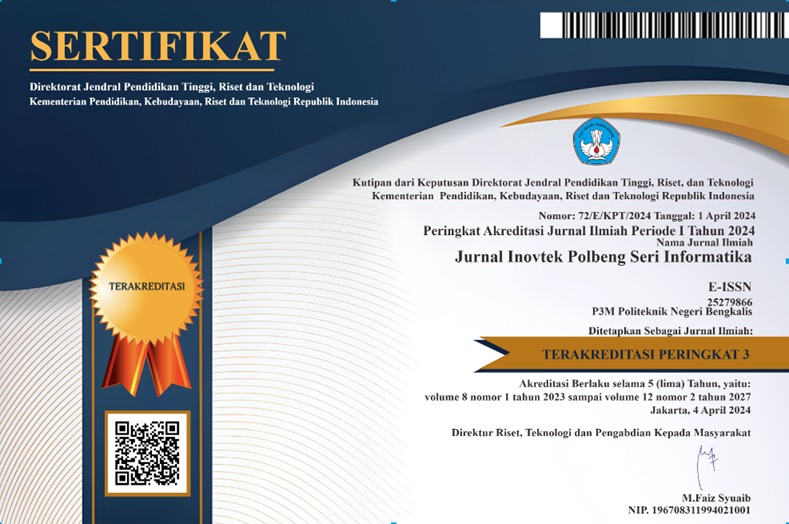Applying KNN, NBC, and C4.5 Algorithms to Identify Eligibility for Non-Cash Food Aid
DOI:
https://doi.org/10.35314/89xvxf70Keywords:
BPNT, K-Nearest Neighbor, Naïve Bayes Classifier, C 4.5, ClassificationAbstract
The Indonesian government has implemented the Non-Cash Food Assistance (BPNT) program as an effort to improve people's welfare. However, in its implementation, there are still obstacles in the process of determining the right beneficiaries. Determining the right BPNT recipients is important to ensure that the assistance is received by people who really need it and to prevent budget misuse. This research aims to help the government to easily process data using three classification algorithms, namely K-Nearest Neighbour (K-NN), Naïve Bayes Classifier (NBC), and C4.5 in classifying BPNT recipient data in Air Molek Village, Indragiri Hulu Regency. K-NN, NBC, and C4.5 were chosen because they represent different approaches: K-NN is distance-based, NBC is probability-based, and C4.5 uses decision trees. The stages of the methodology used include data collection, data preprocessing, data splitting (Hold-Out), data balancing and model testing. The results showed that the K-NN algorithm got an accuracy of 70.45%, precision 68.34% recall 72.42%, NBC got an accuracy of 60.58%, precision 58.21%, recall 85.42%, and C 4.5 with an accuracy of 62.56%, precision 59.17%, recall 63.33%. The results of this study can help the government in developing a more objective and data-based decision support system for determining BPNT recipients. The limitation of this research is the use of data that is limited to only one of the data sources.
Downloads
Downloads
Published
Issue
Section
License
Copyright (c) 2025 INOVTEK Polbeng - Seri Informatika

This work is licensed under a Creative Commons Attribution-NonCommercial-ShareAlike 4.0 International License.














